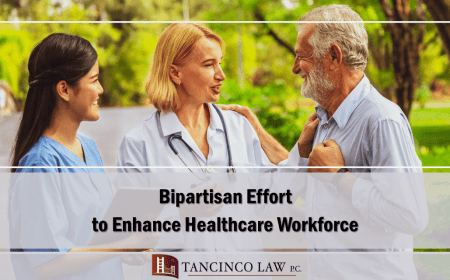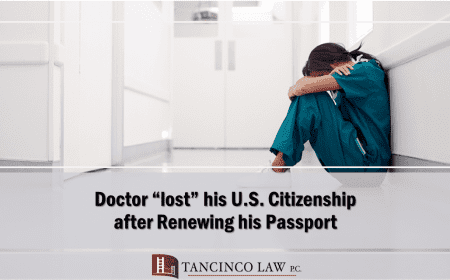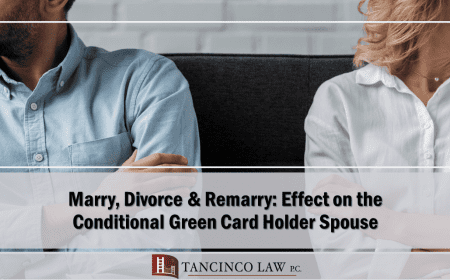Anna has been a green card holder for almost ten years now. She is suffering from a kidney disease. A kidney transplant will relieve her of her medical condition.
Her brother, Mark, who lives in Manila was identified as the kidney donor. Mark has been evaluated and was found to be a perfect match. He agreed to donate his kidney to Anna. Unfortunately, Mark has been denied a visa to enter the US and is unable to go the US to donate his kidney. In the meantime, Anna continues to suffer as she receives daily peritoneal dialysis treatment. Various health care workers are attending to her, which includes her charge nurse, clinic dietitian and nephrologists.
A letter was sent by Anna’s sister asking how Mark will be able to obtain the appropriate visa so the kidney transplant for Anna may be scheduled. The letter states that there is a pronounced shortage of organs available for donation in America and the average wait is now over 5 years for a deceased kidney donor. According to her sister, the percentage of finding a perfect match, even among family members is very low and their brother Mark is among a very short pool of rare candidates.
The Visitor Visa
The most commonly applied type of nonimmigrant visa is the visitor’s visa or the B2 visa. Thousands of B2 visas are issued each year but many more are also denied. While the visitor’s visa is known to be the type of visa that is used to visit friends and relatives, it is also the same visa that is applied for rest and medical treatment. This is a legitimate activity that is defined by the US Department of State.
Just like applying for a visitor visa for pleasure, an applicant who wants to enter the US for medical treatment must not just document the fact that he is to undergo surgical procedure. Proving the need for one’s presence in the US as a kidney donor is just one of the many factors being considered by the consular officer. An applicant must likewise prove that (1) he has enough ties in the Philippines to return after the medical procedure; (2) must have sufficient resources to finance his trip and cover for the medical costs and (3) must have no ground for inadmissibility or prior visa violation.
The nonimmigrant visa is by its nature a temporary visa and requires the applicant to return to his homeland after a brief trip abroad. This may be shown by, among others, a proof of steady and regular employment, strong family ties, and, assets here. There is no hard and fast rule on how and what sufficient ties mean and the appreciation of the documents to prove such is within the discretion of the consular officer.
Judicious Exercise of Discretion
The US Department of State recognizes that visas for medical emergency raises humanitarian concerns. The denial of visas for most seeking medical treatment may be due to lack of sufficient proof of financial ability to pay the medical cost. In a December 2001 Memorandum by the US Department of State, consular officers were advised to be judicious in granting visas and to require proof of sufficient financial capability to cover all medical treatments as well as follow up care.
In several cases mentioned in the 2001 memorandum, abuses of the nonimmigrant visas for emergency medical treatment were identified at the expense of US hospitals. There were complaints of unpaid medical bills for follow up treatments, which had become detrimental to medical institutions.
Increasing health care costs in the US raise serious concerns not only with foreign nationals but also to its citizenry. Obama’s health care reform program, while it may have passed into law, is still highly opposed by conservatives and has become a pivotal point of contention between the political parties. With an economic crisis that is barely recovering, access to health care for millions of citizens and residents is a pressing issue for the Obama administration.
Cost Benefit to Granting the Visa
It is understood that a “kidney transplant” in the US entails significant costs. If this is covered by the heath care insurance of Anna and the rest of Anna’s family members, then there is no reason to deny the donor entry to the US to undergo the transplant. What is sad is that abusive cases of misuse of the visa for medical treatment impact adversely those who have good intentions to save the life of family members.
If a donor is allowed to enter the US and a kidney transplant is to occur, then the financial cost of taking care of a sick patient will be reduced drastically. After a successful transplant, Anna for example, will no longer need daily dialysis and medical care. The benefit of saving a life and medical savings cost should outweigh the government’s concern about possible “abuses” of medical emergency visas.
Mark should try to re-apply for a B2 visa again and show sufficient proof of what is technically required of an applicant. If everything else fails, he may try seeking for a “humanitarian parole visa” directly from the Department of Homeland Security in Washington DC.
In these days of uncertainty, the health condition of a family member remains a premium priority. For transnational families, obtaining a visa for medical treatment should not become a major hurdle, as the right to medical treatment is not just admittedly a humanitarian concern but a human right.
(Tancinco may be reached at law@tancinco.com or at (02)887 7177)




